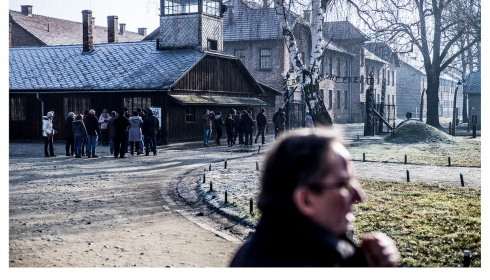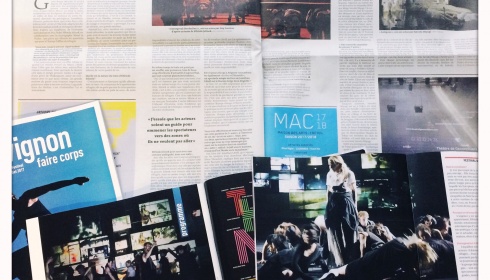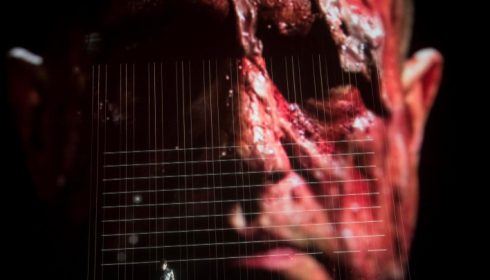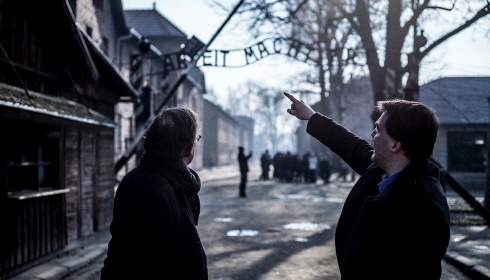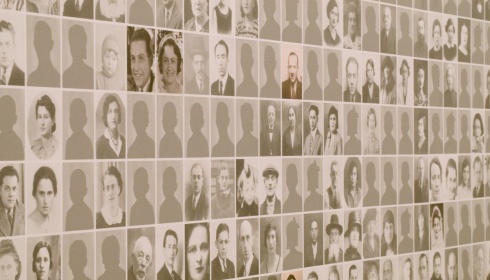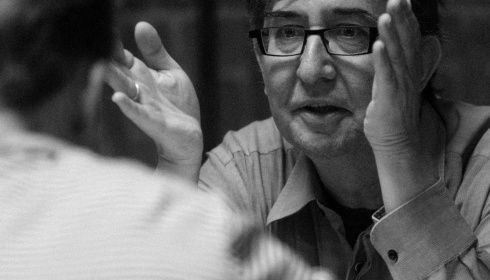
In his small-scale project Le sec et l’humide, Guy Cassiers takes a closer look at the theme he explored in his impressive production De welwillenden (2016) after Jonathan Littell’s novel, The Kindly Ones.
While writing his lengthy novel, Littell also completed an essay entitled Le sec et l’humide in which he dissects the language and imagery he encountered in Fascist writings by the Belgian Léon Degrelle. In contrast to the creative, constructive, orderly, neat and dry approach of the Germans and all the pro-Germans, Degrelle paints horrifying pictures of the lax, slovenly, disorderly, tacky, muddy, smoky and humid Russian world into which the German adversaries are in danger of being dragged. Two voices are heard in the essay: firstly, that of Degrelle himself in the extensive quotes from his book La campagne de Russie and, secondly, that of an (objective?) commentator.
IRCAM - Institut de Recherche et Coordination Acoustique/Musique – in France offered Guy Cassiers the opportunity to experiment with sound and voice. By means of historical sound recordings from the archives, Guy Cassiers has the 'objective' historian tell the story of Léon Degrelle on a campaign in Russia and of his escape to Spain, but gradually the piding line between the narrator and his subject blurs: by subtly manipulating sound and voice, Cassiers interweaves past and present and Degrelle himself becomes the narrator. An intriguing and alarming transformation (courtesy of Johan Leysen’s deep voice). Here, too, the view formulated in De welwillenden is never far off: "You can never say: I will not kill. That is impossible: at most you can say: I hope I won’t kill."

Le sec et l'humide is part of The littell Project co-funded by the Creative Europe Programme of the European Union.
director
- Guy Cassiers
dramaturgy
- Erwin Jans
text
- Jonathan Littell
performance
- Filip Jordens
sound design
- Diederik De Cock
voices
- Johan Leysen
assistance of the director
- Camille De Bonhome
production
- Toneelhuis
- Toneelhuis
coproduction
- IRCAM - Institut de Recherche et Coordination Acoustique / Musique
with the support of
- Cultuur Programma van de Europese Unie









